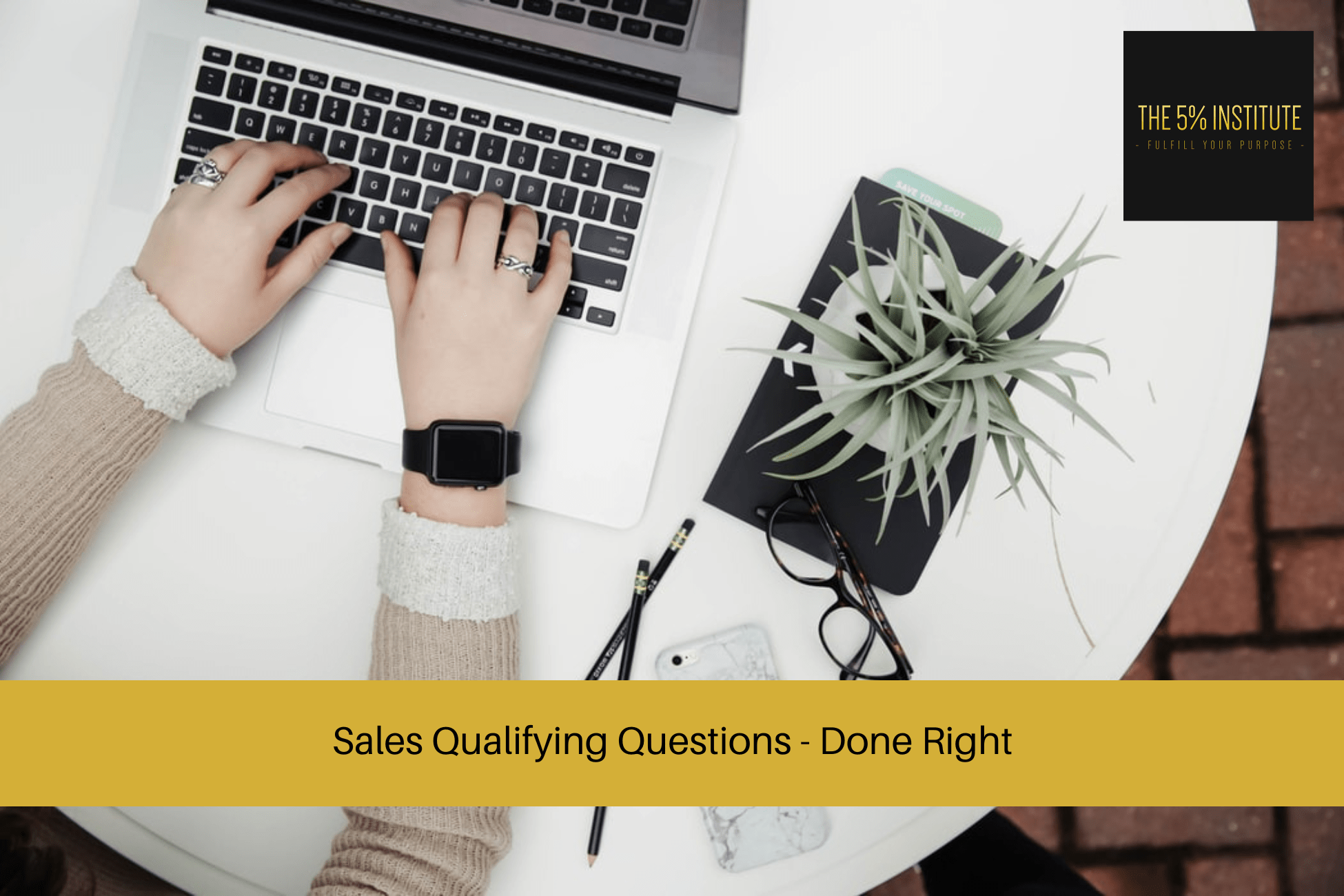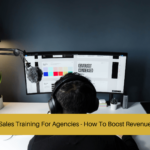
Sales Qualifying Questions – Done Right
Sales qualifying questions play a pivotal role in the success of any sales process.
By asking the right questions, sales professionals can gather valuable insights, understand customer needs, and identify qualified leads.
These questions not only save time and resources but also help establish a strong foundation for building lasting customer relationships.
In this article, we will explore the importance of sales qualifying questions, discuss key elements for their effectiveness, provide common examples, and highlight strategies for asking them.
Additionally, we will delve into overcoming challenges and leveraging technology in the process.
By the end, you’ll have a comprehensive understanding of sales qualifying questions and their significance in driving sales success.
Introduction to Sales Qualifying Questions
In the competitive world of sales, understanding customer requirements and identifying qualified leads is crucial.
Sales qualifying questions are specific queries designed to uncover critical information about a potential customer.
These questions help sales professionals assess the fit between their products or services and the customer’s needs, budget, and decision-making authority.
The Importance of Sales Qualifying Questions
Enhancing Efficiency in Sales Processes
By asking targeted qualifying questions, sales professionals can gather essential information upfront, enabling them to focus their efforts on leads with the highest potential.
This streamlines the sales process, allowing sales teams to allocate their time and resources more effectively.
Identifying Qualified Leads
Sales qualifying questions assist in distinguishing between leads that are likely to convert into customers and those that may not.
By evaluating factors such as budget, timeline, pain points, and decision-making authority, sales teams can prioritize their efforts and concentrate on leads with the highest probability of success.
Saving Time and Resources
Engaging with unqualified leads can be time-consuming and resource-intensive.
Sales qualifying questions help filter out leads that don’t align with the company’s offerings or requirements, saving valuable time and resources that can be redirected towards nurturing qualified leads and closing deals.
Key Elements of Effective Sales Qualifying Questions
To ensure the effectiveness of sales qualifying questions, several key elements should be considered.
Understanding Customer Needs and Pain Points
Asking questions that uncover customer needs and pain points is critical.
This enables sales professionals to tailor their solutions and demonstrate the value their products or services can provide.
By addressing specific pain points, sales teams can position themselves as problem solvers rather than just sellers.
Evaluating Budget and Financial Constraints
Understanding the customer’s budget and financial constraints is essential for aligning the offerings with their affordability.
By asking about budget parameters and investment capabilities, sales professionals can provide suitable solutions that meet the customer’s financial requirements.
Assessing Decision-Making Authority
Identifying the decision-making authority within the customer’s organization is crucial.
Sales qualifying questions should aim to determine who holds the power to make purchasing decisions and who needs to be involved in the decision-making process.
This information ensures that sales efforts are directed towards the right individuals.
Common Sales Qualifying Questions
Sales professionals often utilize a range of common qualifying questions to gather relevant information.
Here are some examples:
Budget-related Questions
- What is your budget range for this project/initiative?
- Are you open to discussing financing or payment plans?
- Have you allocated funds specifically for this solution?
Timeline and Urgency Questions
- When do you intend to implement this solution?
- Is there a specific deadline or timeline you need to meet?
- Are there any time-sensitive factors driving your decision?
Decision-Making Process Questions
- Who else is involved in the decision-making process?
- What criteria do you use to evaluate potential vendors?
- How do you typically make decisions for purchases of this nature?
Competitor Questions
- Are you currently considering or evaluating any other providers?
- How do we compare to your current solution or competitors?
- What factors would make you choose us over our competitors?
Need and Pain Point Questions
- What challenges are you currently facing that you hope this solution can address?
- How have you attempted to solve this problem in the past?
- What specific outcomes or goals are you looking to achieve?
Strategies for Asking Sales Qualifying Questions
To extract maximum value from sales qualifying questions, sales professionals can employ various strategies:
Open-Ended Questions
Using open-ended questions encourages customers to provide detailed and comprehensive responses.
These questions often begin with words like “how,” “what,” or “tell me about.”
Example: “Can you tell me more about the challenges your team is facing with the current system?”
Probing Questions
Probing questions help dig deeper into the customer’s responses to gather additional insights and uncover underlying motivations or concerns.
Example: “You mentioned that cost is a concern. Could you elaborate on the specific budget constraints you have?”
Layered Questions
Layered questions involve building upon previous responses to gather more specific information.
This approach enables a deeper understanding of the customer’s needs and preferences.
Example: “You mentioned that efficiency is important to you. How do you currently measure or define efficiency within your organization?”
Hypothetical Questions
By asking hypothetical questions, sales professionals can explore potential scenarios and gauge the customer’s response to different situations, helping them understand the customer’s priorities and preferences.
Example: “If budget constraints were not a factor, what additional features or functionalities would you like to see in the solution?”
Overcoming Challenges in Asking Sales Qualifying Questions
Asking sales qualifying questions can present challenges, but with the right approach, these obstacles can be overcome:
Building Rapport and Trust
Establishing a rapport with the customer is crucial before delving into qualifying questions.
Sales professionals should create a comfortable environment, actively listen, and show genuine interest in the customer’s needs.
Active Listening and Empathy
Listening actively and empathetically allows sales professionals to understand the customer’s unique situation, concerns, and objectives.
This helps in formulating relevant and effective follow-up questions.
Addressing Objections and Concerns
Customers may have reservations or objections when answering qualifying questions.
Sales professionals should be prepared to address these concerns promptly, providing reassurance and clarifications as needed.
This fosters trust and confidence in the sales professional’s expertise.
Leveraging Technology for Sales Qualifying Questions
Technology plays a significant role in enhancing the effectiveness of sales qualifying questions.
Here are a few ways technology can be leveraged:
CRM Software and Automation Tools
Customer Relationship Management (CRM) software enables sales professionals to track and manage interactions with leads.
Automation tools can streamline the process of asking qualifying questions by providing pre-designed questionnaires and automated follow-up sequences.
Predictive Analytics and Data-driven Insights
Predictive analytics can analyse historical data and provide valuable insights into customer behaviour and preferences.
Sales professionals can leverage these insights to ask more targeted and personalized qualifying questions.
Chatbots and AI-powered Assistants
Chatbots and AI-powered assistants can engage with potential customers and ask initial qualifying questions.
These tools can gather basic information and direct leads to the appropriate sales professionals for further qualification.
Best Practices for Sales Qualifying Questions
To optimize the effectiveness of sales qualifying questions, consider the following best practices:
Customizing Questions for Different Industries
Tailor your qualifying questions to suit the specific needs and challenges of different industries.
This customization demonstrates your understanding of their unique requirements and positions you as an expert in their field.
Prioritizing Qualification Criteria
Define clear qualification criteria based on your target customer profile and prioritize the most important factors.
This helps in efficiently allocating your resources to leads that have a higher probability of conversion.
Constantly Refining and Updating Questions
Regularly evaluate and refine your qualifying questions based on feedback from the sales team and the changing needs of the market.
Keep your questions up-to-date to ensure their relevance and effectiveness.
Concluding Sales Qualifying Questions
By asking the right questions, understanding customer needs, and evaluating key factors such as budget, timeline, and decision-making authority, sales teams can optimize their efforts and achieve greater success.
Leveraging technology and adopting best practices further enhances the effectiveness of these questions.
Remember to customize your questions, prioritize qualification criteria, and constantly refine them to stay ahead in the competitive sales landscape.
Frequently Asked Questions (FAQs)
Why are sales qualifying questions important?
What are some common sales qualifying questions?
Common sales qualifying questions include budget-related questions, timeline and urgency questions, decision-making process questions, competitor questions, and need and pain point questions.
How can I ask effective sales qualifying questions?
Strategies for asking effective qualifying questions include using open-ended questions, probing questions, layered questions, and hypothetical questions.
What are the challenges in asking sales qualifying questions?
Challenges in asking qualifying questions include building rapport and trust, active listening and empathy, and addressing objections and concerns.
How can technology be leveraged for sales qualifying questions?
Technology such as CRM software, automation tools, predictive analytics, and chatbots can enhance the effectiveness of sales qualifying questions by providing data-driven insights and streamlining the process.
Want To Close Sales Easier?
Are you committed to closing sales a lot easier, and consistently?
If so, you should check out our self-paced and affordable online sales training program; The 5% Sales Blueprint.
It’ll give you everything you need to close sales consistently.
To learn more, simply click on the link below for more information.
Our Online Sales Training Program – The 5% Sales Blueprint.



